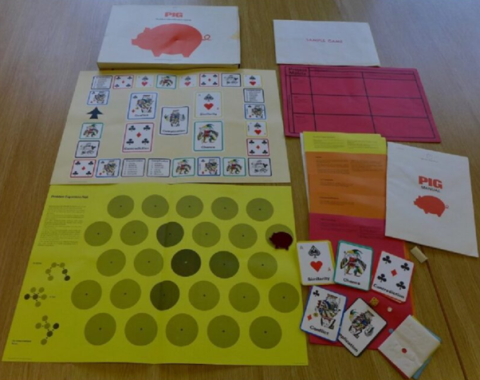
The FASSTEST blog includes posts from practitioners and researchers exploring a wide range of issues and research findings relevant to teaching and learning in the Arts and Social Sciences in higher education.
Here at The Open University we can draw on particular expertise in online and distance education, and we are especially inspired by The Open University’s mission to be open to people, places, methods and ideas. We are committed to placing innovation at the heart of teaching and learning and to discovering new and better ways to inspire and enable learning, opening up higher education to all, regardless of background or circumstances.
We welcome blog posts from anyone with an interest in the scholarship of teaching and learning, particularly in the Arts and Social Sciences. If you are interested in contributing please get in touch with FASS-Scholarship@open.ac.uk with a title and brief description of what you would like to write about.
On becoming Module Chairs of one of the Open University’s largest Level 1 entry modules, Introducing the Social Sciences (DD102), myself, Zoe Doye, and my colleague, Ieman Hassan, have become fervent data watchers. As soon as an assignment cut-off date has passed, we find ourselves in front of our respective computers, impatient to find out the percentage of students who have submitted their assignments. This we continue to monitor as days and even weeks pass, for our Level 1 students are enthusiastic extension requesters, and it is not unusual to have around a q
22nd August 2022
Most Open University students are studying on a part time basis, registering for one module per academic year. This means that (without any study breaks) a degree can be completed in five or six years. However, we’ve recently seen a substantial increase in the number of students opting to complete their degrees more quickly, with around a third of our students now studying at a higher intensity – the equivalent of a full-time degree.
7th June 2022
As Associate Lecturers on DE100 (Investigating Psychology) for some time we had noticed the change in study patterns, where more students were opting for study at fulltime intensity (FTI). With the advent of Covid-19 and the associated restrictions on social interaction, we saw an unprecedented rise in student numbers, and a growing proportion applying for FTI. This we put down to the requirement to study online, so that students who may have applied for places at brick institutions were choosing Open University courses instead as we have such a long track record of quality distance learning provision.
12th May 2022
Entering university as a young student is challenging not least because students coming straight from school are used to regular contact and encouragement from teachers up to their final exams.
25th April 2022
In the arts and social sciences, topics can frequently touch upon violence, injustice, and oppression that many in our university community directly experience and are affected by. In this context educators think carefully about how to teach these topics whilst also safeguarding and supporting students, or whether it is safer to avoid topics that are just too difficult and sensitive. These challenges become deeper in distance learning.
5th April 2022
How can we encourage online learners to engage with their local and physical environment beyond their computer screens? There is increasing evidence of the benefits of object-based and multi-sensory learning at all levels of education (including higher education) as a way of supporting student engagement and deep, personalised learning (see, for example, Chatterjee and Hannan, eds., 2015). These benefits do not just apply to subject disciplines that rely explicitly on hands-on experiences, field work, lab experiments or placements.
3rd March 2022
Studies have shown that the use of games in Higher Education can improve the ability to learn new skills and can facilitate deep learning by increasing the enjoyment experienced by students. This project draws on the expertise in Open University (OU) design to employ such gamified approaches in teaching and sought to apply them to helping students taking the first module in the MA in Art History (A843) with devising a sound end-of-term essay topic.
18th January 2022
As an Open University tutor, I am very aware that some students find it hard to join online tutorials and others who do join may not participate. Although many participate by using the chat box or take part in other interactive activities such as answering polls or writing on the whiteboard, few students turn their microphones on to speak. Without visual clues, it is very hard to interpret how students are feeling when they take part in online tutorials, and in larger tutorials it is difficult to know when or why they might disengage from the session.
16th November 2021
Admittedly, the Arts and Humanities are not traditionally known as the spiritual homeland of number crunching, but in 2019, colleagues and I from the departments of Classical Studies, History, English, and Creative Writing at the Open University broke with tradition and embarked on a quantitative analysis of student attendance patterns within our school.
4th November 2021
Independent learning is usually envisaged as something that students do alone. But on ‘A329, The Making of Welsh History’, an online distance-learning dissertation module at the Open University, the situation is quite the reverse. Launched in autumn 2017, A329 was in late 2018 the subject of a Scholarship of Teaching and Learning project supported by FASSTEST, the OU’s Scholarship Centre for the Faculty of Arts and Social Sciences. That project looked at the efficacy of various pedagogic innovations introduced on the module and found that the two most far-reaching of thes
19th October 2021











